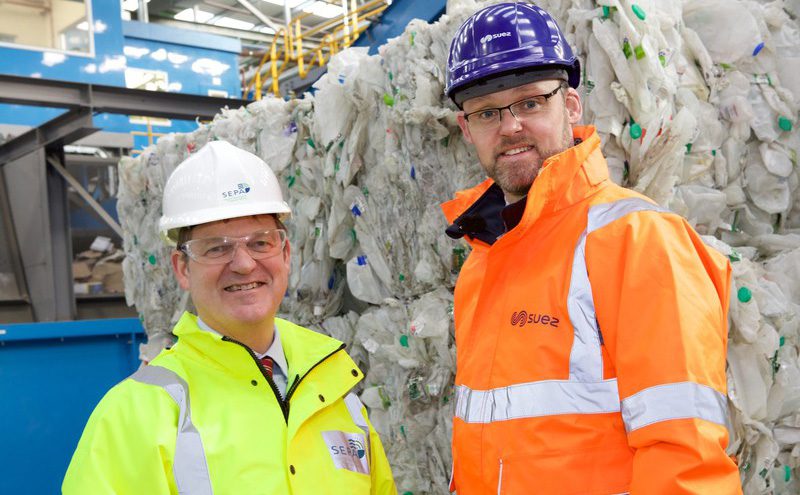
Environmental performance amongst Scottish regulated businesses and other organisations achieved a six year high, with 91.7% of sites recorded as ‘Excellent’, ‘Good’ or ‘Broadly Compliant’, according to results published on 15 February 2018 by the Scottish Environment Protection Agency (SEPA).
SEPA’s Compliance Assessment Scheme (CAS) rates an operator’s environmental performance using a risk-based model to inform a targeted approach which focuses on high risk operations and under-performing sites more frequently than compliant or low risk activities.

For the first time SEPA’s annual report card of environmental performance has been published alongside data on agency’s enforcement activity. Together, says SEPA, they demonstrate that the group’s regulatory strategy One Planet Prosperity, is tackling operators and businesses who are non-compliant and holding them to account while supporting businesses and organisations that want to do the right thing for the environment.
SEPA’s Enforcement Report highlights that during 2016 – 2017:
– 12 cases were referred to the Crown Office and Procurator Fiscal Service (COPFS) by SEPA.
– 120 statutory notices were served for environmental non-compliance.
– 113 final warning letters were issued for environmental non-compliance.
– £92,575 in fines were handed out by Sheriffs for cases referred by SEPA. Over three years this total is £390,025.
Lifting the lid on Scottish waste and recycling operators
Whilst recent years have seen a significant focus by consumers, households, communities and businesses on reuse and recycling, Scotland’s recycling and waste sector has long held an unenviable record of falling foul of Scotland’s environment watchdog
The waste regime had the highest number of cases referred to COPFS (42%), final warning letters (46%) and statutory notices served (48%), as well as the most convictions (38%) secured in 2016 – 2017.
Compliance is non-negotiable, says SEPA, with the agency’s dedicated waste crime and intelligence teams securing a series of high-profile outcomes for local communities. These included the clearing of 1,500 tonnes of illegally deposited waste and chemicals from a site in Newton Mearns, and revoking the license of a significant West of Scotland operation, GBS Recycling Limited in Coatbridge, found to be stockpiling waste on site beyond the time limits allowed, causing significant fly and odour issues from the neighbouring community. The site was rated ‘Very Poor’ in 2016.
In addition to targeted intelligence and enforcement campaigns to crack down on waste crime, the agency is working with businesses investing in high-tech recycling solutions that drive positive environmental outcomes. This includes the £27m materials recycling facility, opened by Suez and Aberdeen City Council last year.
SEPA says overall compliance within the sector has risen to 90.35% in 2016 from 72.48% in 2009.
Food and drink: A fresh focus
Whilst the compliance results and enforcement report highlight an overall improving picture, the data points to areas where a fresh focus is required and where the agency will step-up regulation. These include Scotland’s food and drink factories from 90.94% compliance in 2010 to 88.28% in 2016.
Firm action however from the agency led to a number of notable successes, including the Caledonian Cheese Company, the producer of a number of popular Scottish cheeses at its manufacturing facility in Stranraer. A significant local employer, the company was one of Scotland’s most non-compliant sites, despite robust enforcement action by SEPA which included a report to the Procurator Fiscal which resulted in a £20,000 fine in 2011. Between 2010 and 2015 the site was rated ‘Very Poor’, and was still ‘Poor’ in 2016.
SEPA’s fresh approach to regulation enabled outcome-focussed engagement with the operator, including direct dialogue between senior management to focus on the environmental and business benefits that could be gained from increased investment. This has seen an improvement in the site’s environmental compliance, which restored the site to compliance, reflected in the latest 2017 compliance assessment scheme data.
Further reflecting the need for vigilance, the scheme also showed 34 licensed sites that dropped to the lowest rating of “Very Poor” in 2016.
Speaking at the SUEZ recycling site in Aberdeen, SEPA Chief Executive, Terry A’Hearn said,
“Every day, SEPA works to protect and enhance Scotland’s environment helping communities and businesses thrive within the resources of our planet. We call this One Planet Prosperity. As part of that we’re clear, environmental compliance is non-negotiable. Every Scottish business will comply with the law, and we’ll work to ensure as many as possible will go even further.
“This latest report card on the environmental performance of Scottish regulated businesses is encouraging, with significant outcomes achieved for Scottish communities. It’s a reminder that we’ll work positively with those who want to do the right thing by Scotland’s environment, and a wake up call to those that don’t.
“It’s also an indicator of where we next need to focus our attention and why we’re changing, creating a world-class environment protection agency fit for the challenges of tomorrow.”
David Palmer Jones, Chief Executive of SUEZ UK, said:
“Protecting and enhancing our environment is at the heart of SUEZ’s business. We therefore commend and support the approach SEPA is taking to protect the environment in Scotland by working in partnership with us and other businesses to improve overall compliance standards. For our sector, this helps to create a level playing field which protects not only the environment, but also the substantial investment by those delivering this vital infrastructure for Scotland.”








